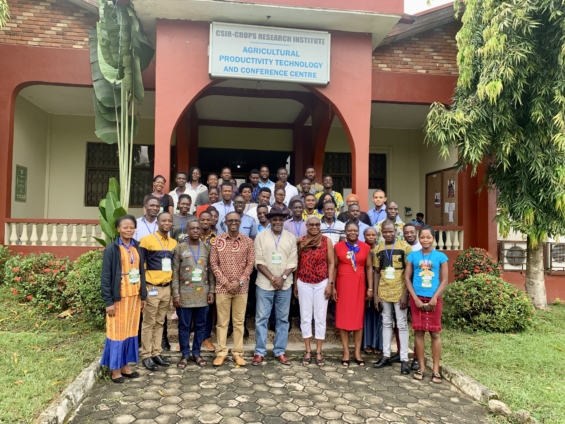As part of efforts to curb unemployment in the country, thirty seven youth from across the country are benefiting from the ECOWAS youth training on sustainable yam production for lowlands and uplands at the Crops Research Institute of the Council for Scientific and Industrial Research (CSIR-CRI.
The training seeks to foster entrepreneurial skills among the youth.
“The essence of the training is that we want them to go back as yam farmers, produce yam and then expand their farm in a way that they can employ other people.
“Unemployment is a big issue in Ghana and all over the world and especially in Africa.
“The agricultural sector employs over fifty percent of the population and once we are able to improve Agriculture and bring the young ones in it is going to bring a huge effect on our economy in terms of the money staying with Ghanaians. We are here to train them to get skills to employ themselves,” Deputy Director of CSIR-CRI, Dr Maxwell Asante explained.
The coordinator of the programme, Prof. Emmanuel Otoo mentioned that the training will equip them with knowledge on yam processing methods.
“Basically, we are looking at yam production and yam production as a business. Our land is fertile for yam production. We produce a number of tonnes of yam after Nigeria, we export them as well. It is indeed a profitable business and we can do so much with yam. Apart from boiling, we can process them into ice-cream as well,” he said.
A facilitator, Dr. Jonas Osei-Adu, a senior research scientist at the Crops Research Institute said the workshop, “will look at technologies that will help us to mitigate the effect of climate change. We mostly loose output when there is climate change so we will look at some technologies that will help produce yam and feed the world.
If there is drought, what varieties can we plant? What agronomic can you adopt? How can we use weather data to plan our farming activities to get the best out of our farms.”
The training is funded by ECOWAS and implemented by the Crops Research Institute.








